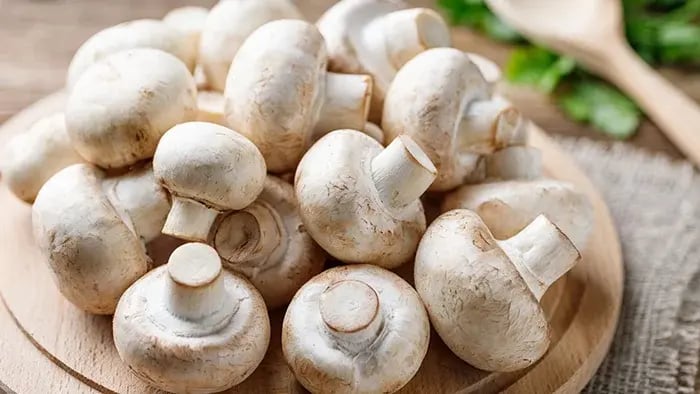- May regulate mood and reduce depression
- May support weight loss
- Healthy bones
- Immune function
- Mushrooms
- Egg Yolk
- Cheese
- Milk
- Butter
- Spinach
Vitamin D is important for kids because it supports the growth of bones, teeth immune system, and brain health and regulates inflammation.
The body produces vitamin D as a response to sun exposure. Infancy and childhood is a period of rapid growth in bone growth. Due to this, infants need to get enough vitamin D. Certain foods boost vitamin D intake. Despite its name, vitamin D is not a vitamin but a hormone or prohormone.
Benefits of Vitamin D:
1. May regulate mood and reduce depression
Vitamin D people our body to regulate mood and decreases the chances of developing depression.
2. May support weight loss
Low Vitamin D levels relate to body weight. There is a high chance that low vitamin D levels and there may be a link between vitamin D and obesity.
3. Healthy bones
It promotes calcium absorption and helps maintain proper levels of calcium and phosphorus in the blood. This is which is necessary for healthy bones and teeth.
4. Immune function
Proper intake of vitamin D supports immune function and reduces the risk of autoimmune diseases.
Top 6se Vitamin D-Rich Foods Your Kids Will Love

Here are some vitamin D powerhouse foods to add to your kid’s diet, to ensure they get the vitamin D their growing bodies require.
1. Mushrooms

Morel mushrooms are a nutritious source of vitamin D. Some varieties are particularly high in vitamin D after being exposed to sunlight. This makes morel mushrooms an excellent option for vegans and vegetarians looking to get enough of this important vitamin. Beyond being a source of vitamin D, it also provides antioxidants, fiber, and minerals. Adding it to your child's diet can help ensure they get adequate vitamin D for proper immune function and bone health.
2. Egg Yolk
Eggs are a nutritious source of vitamin D, as the yolk, in particular, can have high levels of vitamin D. Getting plenty of vitamin D is important for health, immune function, and more, so eggs can be a tasty way to meet your child’s daily diet.
3. Cheese
Cheese is one of the few naturally high-dietary sources of vitamin D, making it a smart choice for parents looking to increase their child's intake. Just one ounce of cheddar cheese provides around 10% of the recommended daily value. Adding a slice or two of cheese to a sandwich, melting it over vegetables, or mixing it into an omelet are easy ways to incorporate more vitamin D.
4. Milk

The most convenient and effective way to obtain vitamin D is by drinking a glass of milk every day. One 8-ounce glass of whole milk provides around 20% of the recommended daily value of vitamin D. This is because vitamin D is a fat-soluble vitamin, meaning it dissolves in fat rather than water. Milk is readily available and easy to incorporate into your child’s daily diet and convenient food sources for getting your daily dose of vitamin D.
5. Butter
Butter is a tasty treat that has been used in cooking for thousands of years. While it is high in saturated fat, it also provides some important health benefits too. Butter's ability to boost vitamin absorption is especially beneficial when it comes to vitamin D. Enjoying a small amount of butter on your toast or vegetables can help your child increase the intake of vitamin D.
6. Spinach
Spinach and other green leafy vegetables are some of the best food sources for vitamin D. One cup of cooked spinach contains the recommended daily amount of vitamin D. With its stellar nutritional profile, it's no wonder that spinach supports skin, hair, and eye health. Raw spinach can be enjoyed in salads, smoothies, and dips. For kids, try blending spinach into pasta sauces, soups, or even baked goods. Including just one serving of spinach each day can provide a major boost of vitamin D.
Her love for storytelling began with reading her grandfather’s speeches, where Tarishi saw the power of words in creating lasting memories. Combining her passions for food and writing, she has turned her life into a fulfilling path of sharing stories that celebrate flavours and how food brings communities together.
The views expressed are that of the expert alone.
The information provided in this content is for informational purposes only and should not be considered a substitute for professional medical advice, diagnosis, or treatment. Always seek the advice of your physician or another qualified healthcare provider before making any significant changes to your diet, exercise, or medication routines.
















